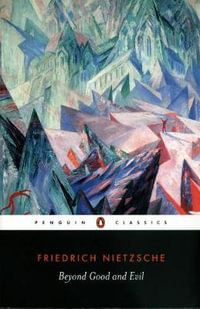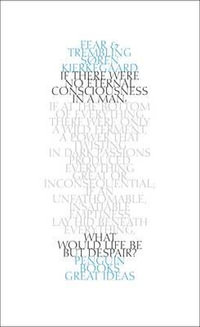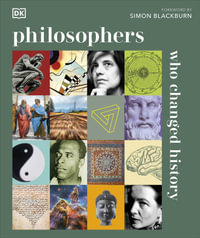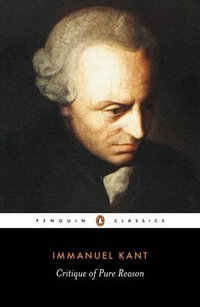Glenn Alexander Magee's pathbreaking book argues that Hegel was decisively influenced by the Hermetic tradition, a body of thought with roots in Greco-Roman Egypt. Magee traces the influence on Hegel of such Hermetic thinkers as Baader, Bohme, Bruno, and Paracelsus, and fascination with occult and paranormal phenomena. Hegel and the Hermetic Tradition covers Hegel's philosophical corpus and shows that his engagement with Hermeticism lasted throughout his career and intensified during his final years in Berlin. Viewing Hegel as a Hermetic thinker has implications for a more complete understanding of the modern philosophical tradition, and German idealism in particular.
Industry Reviews
"This is an excellent book. It performs a significant service by its uninhibited exposure of Hegel's dark side."-Michael Inwood, Trinity College, Oxford, International Philosophical Quarterly, Vol. 42, No. 3, September 2002 "The organization of the text is first class, the reading of Hegel's texts sensitive and perspicacious, and the writing poised, even elegant. This would be a fine book for a scholar at any stage of his or her career. For a first book it is absolutely exceptional... As a tracing of the influence of non-standard discourses on Hegel, and as a tracking of their effective presence in Hegel's texts from all periods of Hegel's literary production, Hegel and the Hermetic Tradition is now the indispensable text."-Cyril O'Regan, University of Notre Dame, Owl of Minerva, Vol. 34, No. 2, Spring/Summer 2003 "This first book-length study of Hegel and Hermeticism builds on both Continental and Anglo-American Hegal scholarship, contributes new perspectives on the gnostic and mystical aspects of Hegel's thought, and is eminently readable! Left- and right-wing Hegelians and theologians may have to revise their estimation of Hegel, if Magee's interpretation withstands critical scrutiny."-Amos Yong, Bethel College. Religious Studies Review, Vol. 28, No. 4, October 2002 "Because Hegel claimed to have attained wisdom rather than to be seeking it, Magee cannot count him as a philosopher... He draws evidence from both his work and his life."-Reference and Research Book News, November 2001 "Magee's splendid book marshals all the available evidence for the Hermetic background and interests of Hegel. This is no small achievement. It involves mastering a side of intellectual history that is frequently referenced but rarely comprehended and an exhaustive account of its application to the formidable philosophical apparatus of Hegel. The result deserves to become the standard reference work for this dimension, not only of Hegel but also of the entire idealist context."-Review of Metaphysics "I hail this book as an important event in Hegelian studies, especially since it addresses issues that have been neglected or dealt with superficially. Now we have a cogent scholarly work that will serve as the point of reference for many years to come."-Antoine Faivre, Directeur d'Etudes l'Ecole Pratique des Hautes Etudes (Sciences Religieuses, Sorbonne) "Thankfully, there are still some writers today who remember that if one tries to discern what a long-dead author's work means for us without first trying to take the author on his own terms, then one runs the risk of reading into the work the prejudices of the present. Glenn Alexander Magee has written a wonderful book; wonderful because it is the subtext for all the major Hegel literature since the 1930s."-Tom Darby, Carleton University "Glenn Alexander Magee has added a crucial dimension to our understanding of Hegel by showing in abundant detail the deep and life-long influences of hermeticism, alchemy, the Kabbala, and various forms of theosophy on Hegel's metaphysics... Magee gives us a Hegel that Hegel would have recognized on the spot, and we are much in his debt for his doing so."-Robert S. Corrington, Drew University
























